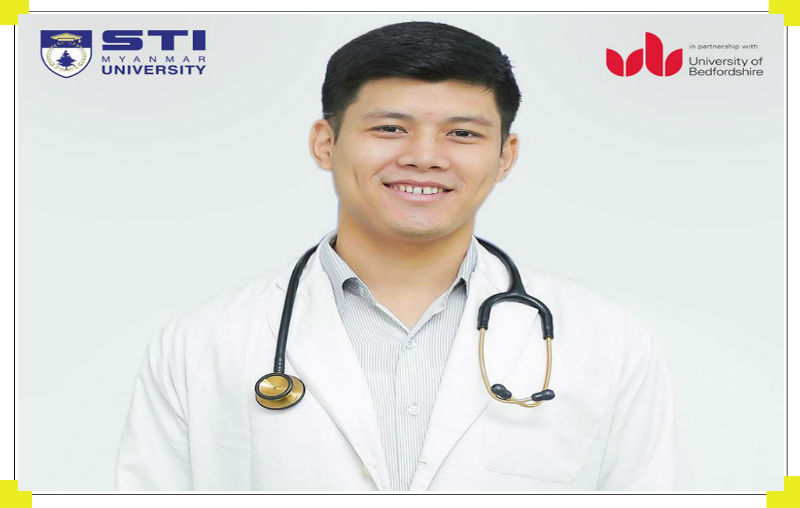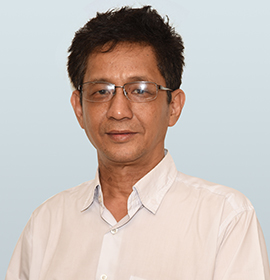BSc (Hons) Public Health – (3years full-time)

- 🎓 Category : FACULTY OF HEALTH SCIENCE
- 🎓 Program : Undergraduate Programs
- 👩🎓 Course Coordinator : Dr. Thein Tan
About the course
This course is designed to cater to the needs of people seeking career opportunities in the health sector in Myanmar or a South Asian country with a similar geopolitical arena. The course design recognises the increased complexities due to constant changes and technology in health services. Across the region, there is an enduring and growing demand for healthcare and the demands frequently outstrip the available resources. This presents challenges for health professionals in discharging their responsibility to meet public expectations for health outcome improvements. The course has been designed to be applicable and relevant to the wide spectrum of roles within public health irrespective of job titles, allegiances and sector (statutory or national/international/voluntary). The course has been developed to contribute towards building and shaping the public health workforce, nationally and internationally, by enabling entry to higher education for future and current public health practitioners and as a potential consequence, helping to facilitate workplace promotion within employment. Additionally, the provision of public health education at STIMU is directed towards the building of a workforce that will represent both an asset and a resource for local and national agencies. This course will also be a natural progression route to the MSc Public Health, which has already been established at STIMU.
The philosophy of the course is based upon the belief that adult learners learn more effectively when they are active in the learning process, rather than simply being passive recipients of knowledge. Assessment of learning is not simply about the recall of factual information but requires students to demonstrate critical thinking and evaluative skills. You will be supported in your learning through a variety of means, determined by your previous learning experiences. The School of Healthcare Practice is proud of the level and variety of support offered to students from within the Faculty and across the University.
Method of Assessment
The assessments used within this course are designed to help you enhance your professional practice by requiring you to review a wide range of evidence underpinning best practice and to consider the implication of this evidence for your own role. The notion of professional learning as a lifelong journey is emphasised throughout the course. Public health professionals are required to take responsibility for their own professional development and the learning and assessment activities you undertake during the course will assist you in identifying future learning needs.
As a public health practitioner, the ability to critically appraise the practice of both yourself and others is essential in maintaining patient safety and enhancing the quality of healthcare services. Furthermore, the requirement for you to manage your study time effectively and to work under self-direction when preparing for assessments, are attributes that are applicable to the work environment.
The inclusion of presentations as a form of assessment will develop your confidence in conducting formal presentations and discussions, which are skills fundamental to working effectively within a multidisciplinary/multi-agency healthcare environment.
This course uses a range of other assessment strategies including:
-
Essays to demonstrate the application of pertinent theory to and evaluation of practice
-
Preparing and leading presentations/seminars to demonstrate your confidence and ability to communicate knowledge and understanding verbally to a peer group in a critical manner.
-
Literature reviews, including the final dissertation project
Formative assessments provide you with the opportunity to receive developmental feedback on non- graded assessments.
Entry Requirement
This is a closed course for STIMU. The course is designed as a progression route for students who already hold a level 5 qualification (FHEQ) and who wish to achieve a UK honours degree. Standard entry requirements will be applied. This means that the students who have pursued level 4 and level 5 courses of public health programme at the STI University with the required English language proficiency will gain entry into this programme. Level 4 and 5 are benchmarked to FHEQ.
Course Structure
|
Unit Code |
Level |
Credits |
Unit Name |
Core or Option |
|
PUB001-3 |
6 |
30 |
Principles of Public Health |
C |
|
PUB002-3 |
6 |
30 |
Adopting Evidence Based Practice in Public Health |
C |
|
PUB003-3 |
6 |
30 |
Leadership and Management in Public Health |
C |
|
PUB004-3 |
6 |
30 |
Dissertation |
C |
Career:
Public Health remains a global, national and local priority. This course will equip you with academic and practical skills which will enable you to compete in the job market and will enhance your opportunities in your own country and more globally. The diverse BSc in Public Health curriculum gives STIMU graduates a broad understanding of the wider determinants of health; health improvement strategies; health protection; health inequalities, as well as health research. Consequently, wide-ranging opportunities within Public Health are open to Public Health graduates. Many graduates are employed within Government Public Health departments, at the local or national level, working in roles developing and implementing Public Health policy or commissioning services as public health officers, public health practitioners, public health and health promotion managers. Others secure roles with NGOs, working to deliver Public Health interventions in the field. While many choose to go on to further postgraduate study and research roles.
Further study: The completion of an honours degree course will enable you to access post-graduate courses offered throughout the University, which may be dependent upon visa extension.
Master’s degrees in related fields include:
MSc Public Health
MSc Global/International Health
Course Fees
19,200,000 MMK (Course Fees may change without prior notice)














